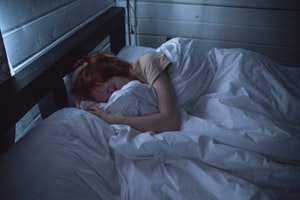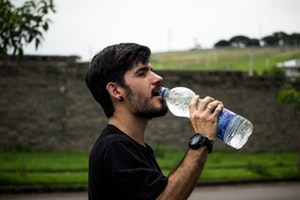
Dehydration is when your body loses more water from sweat or urine than it can take. Dehydration is a serious concern, especially for the elderly and infants, but also for the rest of the population. With the dog days of summer here, it is crucial to be aware. Similarly, when we have stomach problems, dehydration is concerning.
Most people know that dehydration means we become thirstier, sweat a lot, and have a drier mouth. What are some of the less obvious signs? The signs we overlook? We review them here to be aware of when you should take a drink of water right away.

Bad breath
Did you brush your teeth not too long ago? Did you notice that something is still not right with your breath? Dehydration could be the factor. When your mouth is drier than normal, bacteria live longer and multiplies quickly.
Saliva which fights bacteria also may not produce as easily when you are dehydrated. Although these bacteria are harmless, they can cause halitosis, the condition of having bad breath.
Disrupts sleep
Some people may avoid drinking a lot of liquids to prevent bathroom episodes from interfering with their sleep. In reality, your body needs enough fluids to stop your mouth and nasal passages from getting dry to prevent snoring that can disrupt sleep.

Since leg cramps can be a consequence for lack of fluids, they can keep you awake at night. Also, dehydration not only can interfere with sleep, but you can also have a hard time functioning mentally the next day. This includes but is not limited to, confusion and irritability.
Dizziness
We don’t necessarily mean vertigo. We mean the dizziness that can make you struggle with balance. For example, if you stand too long because you look at a mountain, you could fall horizontally because gravity may not pull blood towards the leg. That kind of dizziness.
According to the American Heart Association (AHA), as dehydration can cause blood pressure drops, this can cause dizziness in return. Blood pressure can also drop when standing after lying down because your heart cannot pump blood up to the brain quick enough.
Headache
Despite the lack of confirmed correlations between dehydration and headaches, some studies have shown that blood vessels may be responsible. If you don’t drink enough liquids, your blood vessels may attempt to control body fluid levels. When the blood vessels are in control, oxygen and blood can’t reach the brain quickly, resulting in a headache.
Yellow urine
This sign is a little more obvious but worth the mention anyway. When we are dehydrated, the kidneys remove the body’s water instead of our water. Since there is barely any of our water in the urine; this results in a darker, yellowish colour. Sometimes, darker urine can indicate another infection, but this is rare.
If you take vitamins frequently, this could be the leading cause of yellow urine. Vitamins have an excess of Vitamin B2 (Riboflavin) which reaches urine resulting in yellow colour. Still, if you are in that situation, you should assess how regularly you are drinking water daily. The lack of water could still be a factor.
What to do
Obviously, drinking enough liquids would be how to prevent dehydration. We specifically mean water. Most other beverages do little to keep you hydrated. Coffee, in particular, can actually make you more dehydrated because it is a diuretic.
As most fruits contain water, they can also help with hydration. However, you should not replace water with fruits. Water intake is higher when drinking water by itself.
It will be interesting: How Much Water Should I Be Drinking?



